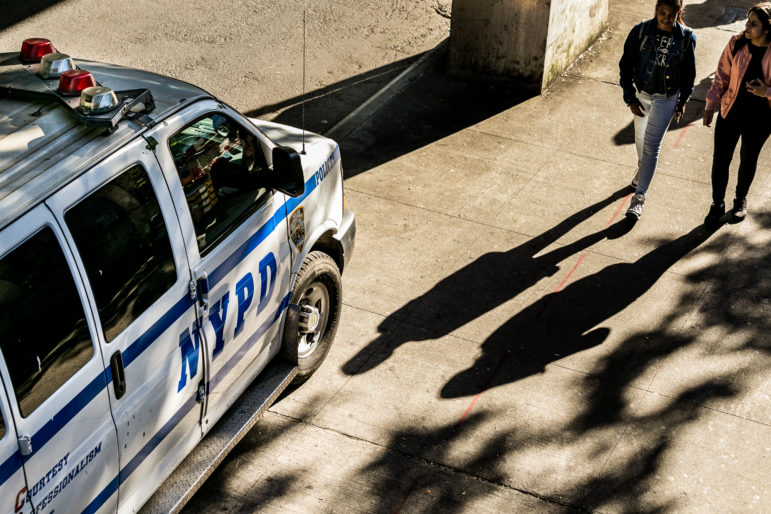“The federal monitor overseeing the NYPD stop and frisk reforms has repeatedly warned that officers are under-reporting stops, leading to a likely massive undercount. In my case, this meant that I was not able to identify the officers who stopped me, since they never filled out the required stop report.”

Adi Talwar
I was illegally stopped, frisked, and searched by the NYPD. I sued them, and my case made international news and resulted in an overhaul of the NYPD’s rules on conducting warrant checks during stop and frisks. But my stop is not counted in the NYPD’s official stop-and-frisk database, likely due to a loophole in reporting requirements that the New York City Council has an opportunity to fix by immediately passing the “How Many Stops Act.”
One of the scariest nights of my life was when four plainclothes NYPD officers jumped out of an unmarked police car, surrounded me, ordered me to turn around and put my hands up, searched me, and demanded my ID to run a warrant check. When I asked why they stopped me, they said that they were looking for guns.
I had no criminal record and I’ve never had a gun. But I was a Black man in my early 20s in Harlem, and so the police automatically treated me as a suspect. We’ve all seen what can happen in these encounters when things go wrong. I complied with the officers. When they didn’t find anything, they let me go.
The interaction lasted less than 15 minutes, but it has haunted me ever since. Put yourself in my shoes: have you ever been going about your business one minute and then had four large, armed men jump out of a car and surround you the next? Being stopped by the police can be a terrifying experience and it should never be taken lightly.
A year or so later, I got connected with a group of civil rights lawyers and decided to speak out about what the cops had done to me. I joined several others, who, like me, were illegally stopped by NYPD officers while they ran warrant checks on us. Together, we sued the city to try to end these illegal practices.
Because of the lawsuit, the city was obligated to turn over all records related to our stops to our lawyers. But the city couldn’t find any record of the stops in half of our cases. Apparently, this is very common. The federal monitor overseeing the NYPD stop and frisk reforms has repeatedly warned that officers are under-reporting stops, leading to a likely massive undercount. In my case, this meant that I was not able to identify the officers who stopped me, since they never filled out the required stop report.
Because of this, the officers got away with illegally stopping me—I couldn’t file a complaint against them or name them in my lawsuit for violating my rights. I will never know exactly why the officers stopped me, and why they didn’t fill out the required stop report. But I do know that New York City has a MAJOR loophole in its NYPD reporting requirements.
Right now, the NYPD can approach anyone they want and ask questions like what their name is or where they’re going—what the department classifies as “Level 1 or 2” stops. These kinds of encounters are some of the most common interactions between officers and New Yorkers. And because they don’t rise to the level of a stop-and-frisk (considered Level 3 stops)—when officers must have “reasonable suspicion” of criminal activity—the NYPD is not required to track or publicly report on any of these encounters.
The NYPD refers to these as “low level encounters” but I can tell you what happened to me was anything but. The officers making the stop are the ones who decide what level it was, which determines whether they must complete a stop report. If the officers are confused and misclassify the stop as a Level 2, then the public has no record of the stop ever happening.
What is worse is that, if the officers knew they were conducting an illegal stop and frisk, they can avoid review of the encounter altogether by classifying it as a Level 1 or Level 2 and not reporting it. I can’t help but wonder if this is why there was no report from the night that officers stopped me.
The New York City Council has the power to close this loophole. They should require the NYPD to tell us how many stops they’re really making by passing both Intro 586 and Intro 538 right away.
Terron Belle was the lead plaintiff in a class action lawsuit challenging the NYPD’s unconstitutional practice of prolonging stops to demand a person’s identification to run unrelated warrant checks. Belle lives in Harlem.








